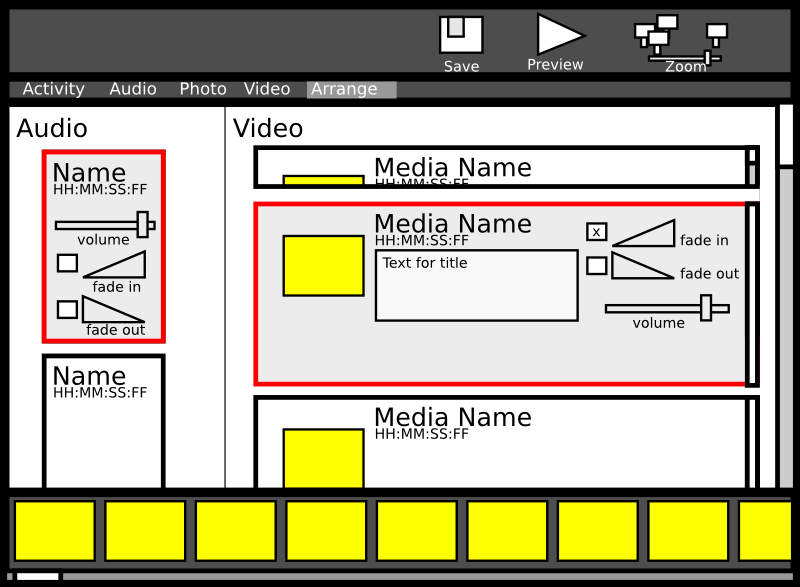Projects/VideoEditing
Arrange, Direct, and Mix: Video Editing for the XO
rob ochshorn rmo25 [at ] cornell [ dot ] edu
The XO contains both camera and microphone, which with simple editing facilities could make it a complete production studio. Video is a powerful tool for expression, and editing facilities elevate XO users to producers rather than simply consumers of video.
I anticipate video editing for the laptop taking three forms: "Arrange," "Mix," and "Direct."
I'm am working with Roberto Fagá on this project. (One day we'll merge his VideoEdit page and this one.)
As a first step, I am attempting to port PiTiVi to sugar.
Porting PiTiVi to Sugar
PiTiVi is being developed along with the GNonLin plugin to GStreamer, and requires a cutting-edge build of GStreamer (Compiling_GStreamer_On_The_XO). A Sugarized interface to PiTiVi would be a powerful editing solution for the XO.
A SVN repository of the work-in-progress PiTiVi Sugar port is available here:
svn co http://boringclothes.com/svn/xo/pitivi
Some of my original ideas for the design/interface follow...
ARRANGE:
"Arrange" will be a tab in the Record activity which will allow for media generated in Record--photos, audio, and video--to be trimmed, sequenced, played, and saved. No precise controls for synchronization need be provided here--the emphasis is on speed and ease of use.
MIX:
"Mix" is a tool (part of "Direct"?) to auto-generate either a real-time stream or a file containing a montage programmatically sequenced and put to music according to user-supplied parameters (eg. pace, temporal linearity, consistency, etc.). This is similar to the programmatic sequencing present in the TamTam suite.
DIRECT:
"Direct" is a simple but full-featured nonlinear editor.
BACKEND:
GStreamer is already used extensively on the laptop, and will provide the display/rendering backend. Specifically, the GNonLin plugin to GStreamer allows for extensive codec support, a framework for effects and transitions, and nonlinear capabilities.

